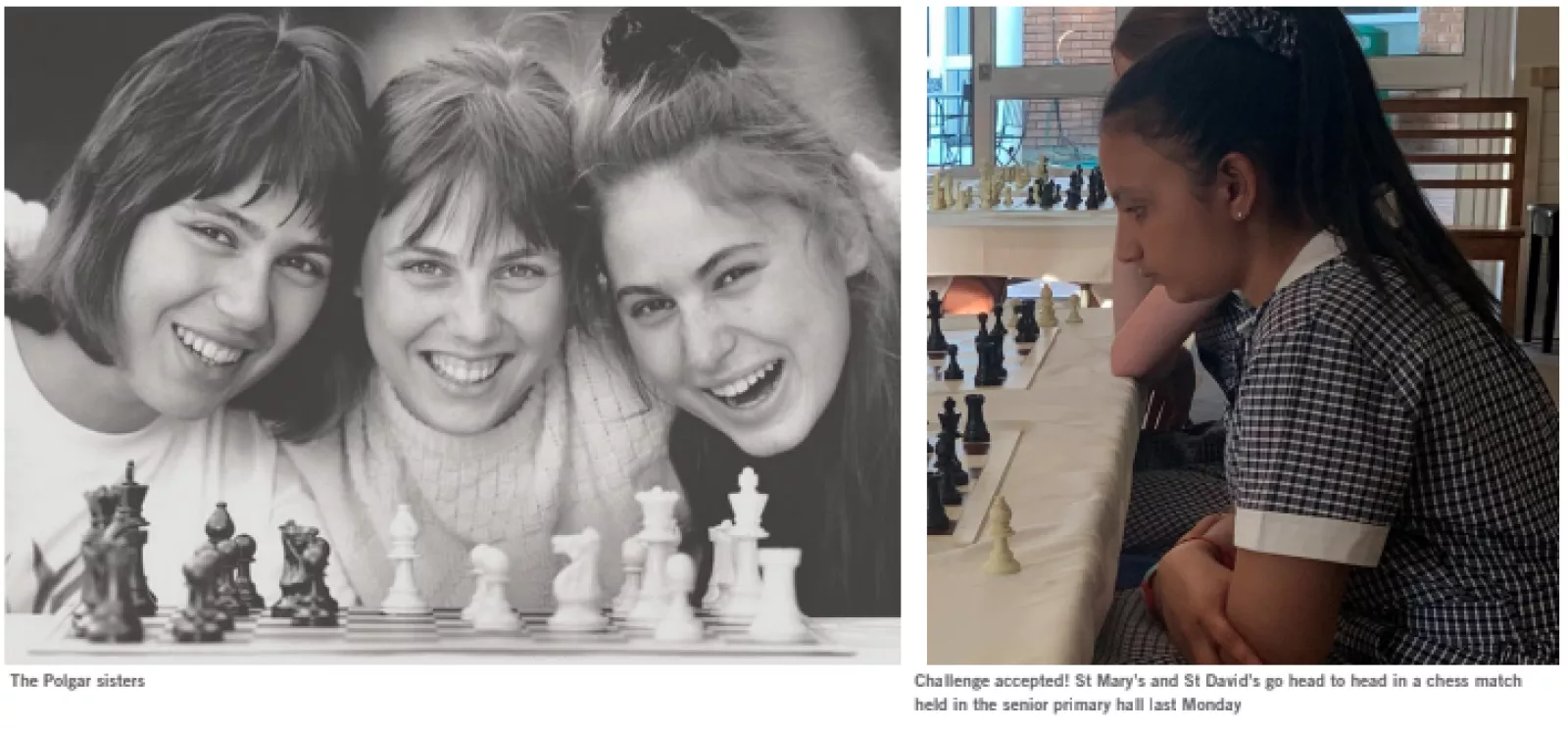From the headmistress’s desk: 18 October 2019


Dear parents
Last week in assembly an enterprising group of Grade 4 girls gave a presentation on chess and the intellectual and social benefits of playing chess at school. Their intention was to raise the profile of chess at St Mary’s, to argue for its recognition as an inter-house activity, and to enlist more players for the fortnightly chess matches arranged with other schools.
The girls spoke stirringly of observable improvements in problem-solving ability, strategic thinking, and increased levels of patience among chess players, and they bemoaned the small number of chess players at St Mary’s (a mere five percent of the girls in the Junior School) and of women players in the world (only 11% of players in international mixed-gender tournaments and two percent of grandmasters are women), urging the girls to reconsider their co-curricular commitments.
Following the girls’ lead, I took the opportunity to speak about famous women chess players, and the Polgár sisters (Susan, Sofia and Judit) in particular. Of the three remarkable siblings, Judit is the most celebrated: she became the youngest international chess grandmaster at the age of 15, breaking Bobby Fischer’s record, and was ranked eighth in the world’s men rating list in 2005, the highest rank achieved by a woman. As teenagers, Judit and her sisters were part of the Hungarian national women’s team that won the Olympic gold medal twice. The young sisters’ success was not warmly received by the older male players they competed against and routinely beat, causing Susan to remark drily that she, “Never won against a healthy man. After the game, there was always an excuse: ‘I had a headache. I had a stomachache.’ There is always something.”
I shared with the girls what Garry Kasparov, a fomer world chess champion, said of Judit (“She is talented but not greatly talented. Women by their nature are not exceptional chess players.”) and was pleased when his comment elicited indignant groans from my audience. At the same time, Kasparov’s seemingly disparaging remark about the limits of Judit’s talent is central to the story of the Polgár sisters whose father, Lazlo, a Hungarian psychologist, believed he could turn any healthy child into a prodigy through early and intensive specialisation in a particular subject. With the help of his wife Klara, a Ukranian foreign language teacher, he conducted a pedagogical experiment on his three daughters that not only privileged practice and hard work over talent, but that treated talent as largely irrelevant.
The phenomenon of the Polgár sisters and their individual encounters with the world of competitive chess has led to much research into the benefits of early brain moulding and enriched visual-spatial centres as well as a more focused interest in what could be called gendered orientations and their profound impact on, in chess terms, a player’s style – what we would understand in more general terms as the effect of mindset on performance. In the words of Sophia, arguably the most naturally talented chess player of the three sisters, “I could give up easier than Judit. I never worked as hard as she did.” The “laziness” that Susan detects in her younger sister is explained differently by Carol Dweck, professor of psychology at Stanford University, who demonstrates how people’s beliefs about their ability affect their performance. Dweck’s well-travelled definition of a growth mindset and a fixed mindset is given powerful expression in clinical psychologist Lisa Damour’s Untangled: Guiding Teenage Girls Through the Seven Transitions Into Adulthood:
“Girls with a growth mindset embrace challenges because they know that hard work will expand their skills, welcome feedback from teachers and coaches because it provides information about where they need to aim their efforts, and feel inspired by talented peers. Girls with a fixed mindset, on the other hand, fear challenges because they worry that they’ve come to the limit of their abilities, feel threatened by feedback because it provides good or bad news about what they believe to be fixed traits, and feel humiliated by their talented peers.”
Damour concludes by asking: “How do we offer growth-mindset reassurance? We celebrate effort over outcome.” Effort over outcome or, as my Grade 1 daughter is quick to remind me, “St Mary’s girls never give up.”
Dr Sarah Warner
Junior School headmistress
Related News

Little Saints News

Grade 0 News

Grade 7 News
